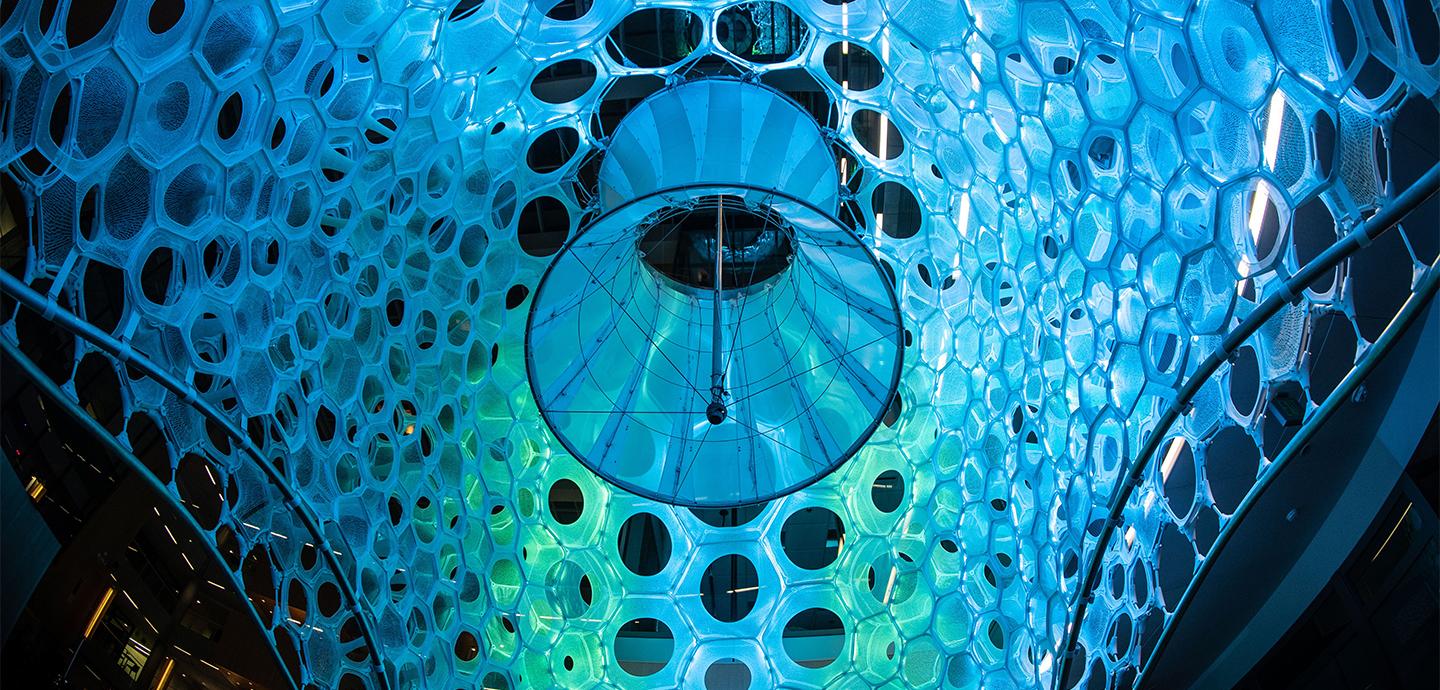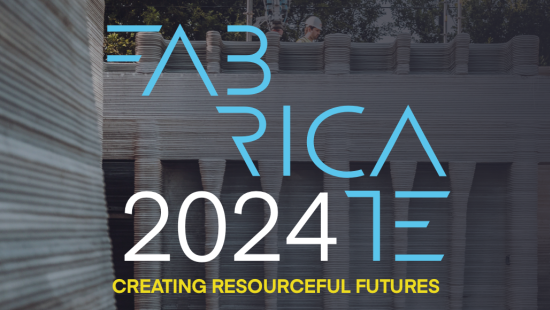Jenny E. Sabin: Transdisciplinary Design — Towards Adaptative Architecture

Ada, designed and built by Jenny Sabin Studio for Microsoft Research Artist in Residence Program 2018–2019. The first architectural pavilion project to incorporate AI, Ada is a lightweight knitted pavilion structure composed of digitally knit responsive and data-driven tubular and cellular components held in continuous tension via a 3D printed semi-rigid exoskeleton shell. image / Jake Knapp for Microsoft
Design Tech Lecture Series
Abstract
How might buildings behave more like organisms responding to and adapting to their built environments? In the not-so-distant future, materials will not just be elements and things in buildings, they will generate immersive adaptive spaces. Like the cells in our bodies, sensors and imagers will learn and adapt, making materials not only smart, but also aware, sensate, and beautiful. 3D printing, advanced manufacturing, and robotics are transforming how we live, work, do business, and engage with our communities. Recent advances in computation, visualization, material intelligence, and fabrication technologies have begun to fundamentally alter how we design, construct, and make from the nano to macro scales. Sabin's approach entails the hybridization of labs and studios to fuse innovations across science and design to generate next-generation materials and structures that are adaptive, efficient, smart, and resilient.
This talk will present ongoing transdisciplinary research and design spanning the fields of cell biology, materials science, physics, fiber science, fashion, mechanical and structural engineering, and architecture. Sabin's collaborative research, teaching, and design practice focus on the contextual, material, and formal intersections between architecture, science, and emerging technologies. The material world that this type of research interrogates reveals examples of nonlinear fabrication and self-assembly at the surface and at a deeper structural level. In parallel, this work offers up novel possibilities that question and redefine architecture within the greater scope of generative design, sustainability, and fabrication. This talk will elucidate the research methods, prototypes, and architectural projects that Sabin and her collaborators have achieved, which include adaptive building skins, fabric structures and ceramic assemblies, and architectural interventions that ultimately (re)configure their own performance based upon local criteria and human interaction.
Bio
Jenny E. Sabin is an architectural designer whose work is at the forefront of a new direction for 21st-century architectural practice — one that investigates the intersections of architecture and science and applies insights and theories from biology and mathematics to the design of responsive material structures and ecological spatial interventions for diverse audiences. Sabin is the Arthur L. and Isabel B. Wiesenberger Professor in Architecture and the inaugural Chair for the new multicollege Department of Design Tech at the Cornell College of Architecture, Art, and Planning where she established a new advanced research degree in Matter Design Computation. She is principal of Jenny Sabin Studio, an experimental architectural design studio based in Ithaca, and Director of the Sabin Design Lab at Cornell AAP. Her book, LabStudio: Design Research Between Architecture and Biology, coauthored with Peter Lloyd Jones was published in July 2017. In that same year, Sabin won MoMA & MoMA PS1's Young Architects Program with her submission, Lumen.





